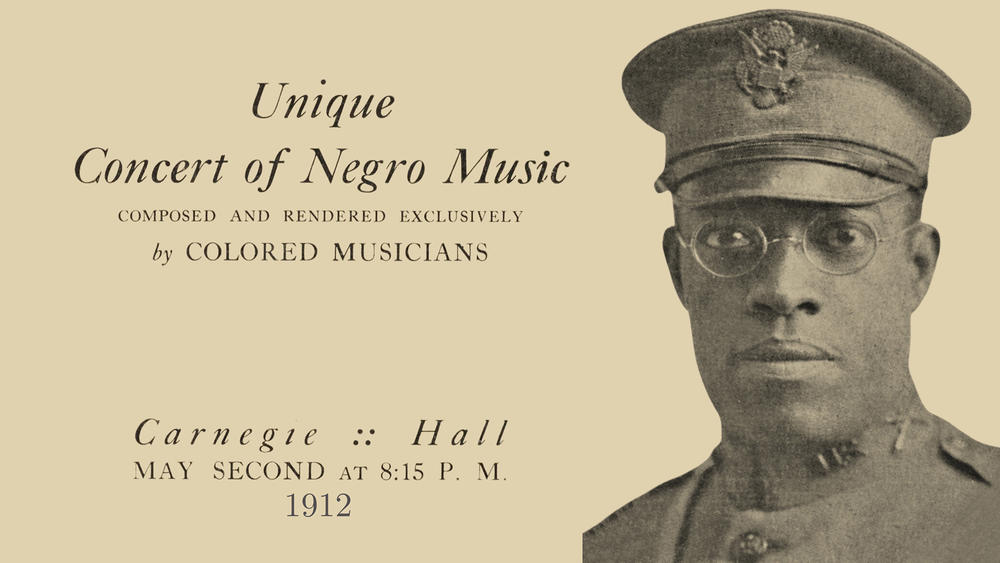
Section Branding
Header Content
James Reese Europe
Primary Content
February is Black History Month, when we take time to honor African Americans who have contributed to the cultural, political, societal and academic evolution of our nation. And sometimes, when we dig into that history, we unearth the stories of remarkable people whose names were largely forgotten.
Salvation South Editor Chuck Reece has the story of one such extraordinary man in this week’s commentary.

TRANSCRIPT:
MUSIC: Jason Moran – “Clef Club March”
Chuck Reece: Some of my favorite moments of discovery have happened when I found something I wasn’t looking for in the first place. And I want to share my most recent discovery with you.
In 1881, in Mobile, Alabama, an African American man named James Reese Europe was born into this world. When he was 10 years old, his parents moved the family up to Washington, D.C., and young James began to study music. He became a wonderful pianist, and music flowed out of him like the Potomac River into the Chesapeake Bay.
When he was 23 years old, James moved to New York City. Six years after that, he founded the very first union for black musicians in New York. It was called the Clef Club. And he formed the Clef Club Orchestra, a 100-piece ensemble that, two years later, did something unprecedented: They became the first Black orchestra to play Carnegie Hall.
MUSIC: James Reese Europe – “Memphis Blues”
Chuck Reece: The music they played, if you heard it today, you would call it jazz. But the year was 1912 — a full 10 years before Louis Armstrong, that wonderful trumpet-playing son of New Orleans, made his first recordings.
In short, James Reece Europe and his fellow musicians were playing jazz before most people knew there was such a thing.
When World War I came along, maestro Europe enlisted in the U.S. Army in 1916 and was assigned to establish a band that would attract more young Americans to sign up to fight.
His infantry regiment — the 369th — was sent to France to fight beside the French army. Their French colleagues nicknamed them the Harlem Hellfighters, and James Reese Europe became the first Black man to lead combat troops in World War I. And after the fighting, the 369th’s band turned Europe on to the original music they had created back home.
When Europe and his band came home from the war and began recording their songs in a studio in New York City, they were planning a two-month tour, and Europe dreamed of forming a National Negro Symphony Orchestra. But all that ended in May of 1919 when a drummer, convinced that Europe was underpaying him, stabbed and killed him on stage in Boston.
James Reece Europe’s achievement, in a life that didn’t even last 40 years, was remarkable. But I had never heard of him until earlier this month.
And I hope that you can take some time to root around in history — and I hope you’ll visit us at SalvationSouth.com to read more about the story of the mighty James Reece Europe.
Salvation South editor Chuck Reece comments on Southern culture and values in a weekly segment that airs Fridays at 7:45 a.m. during Morning Edition and 4:44 p.m. during All Things Considered on GPB Radio. You can also find them here at GPB.org/Salvation-South and please download and subscribe on your favorite podcast platform as well.
February is Black History Month, when we take time to honor African Americans who have contributed to the cultural, political, societal and academic evolution of our nation. And sometimes, when we dig into that history, we unearth the stories of remarkable people whose names were largely forgotten.
Salvation South editor Chuck Reece has the story of one such extraordinary man in this week’s commentary.






